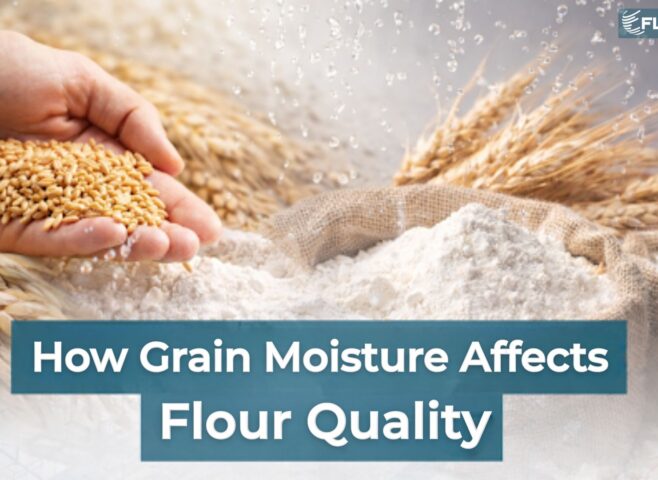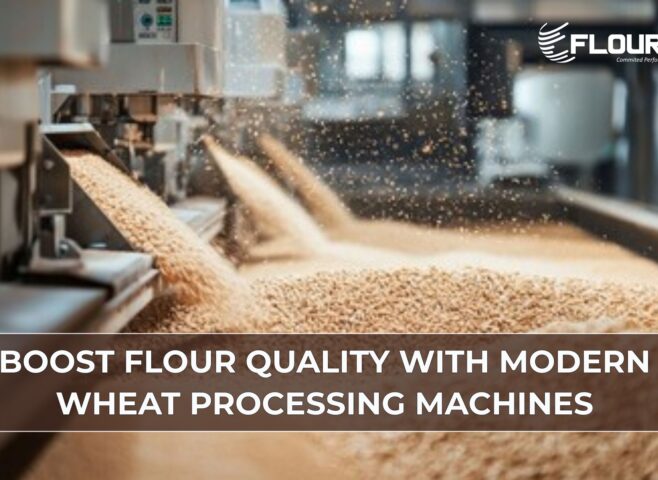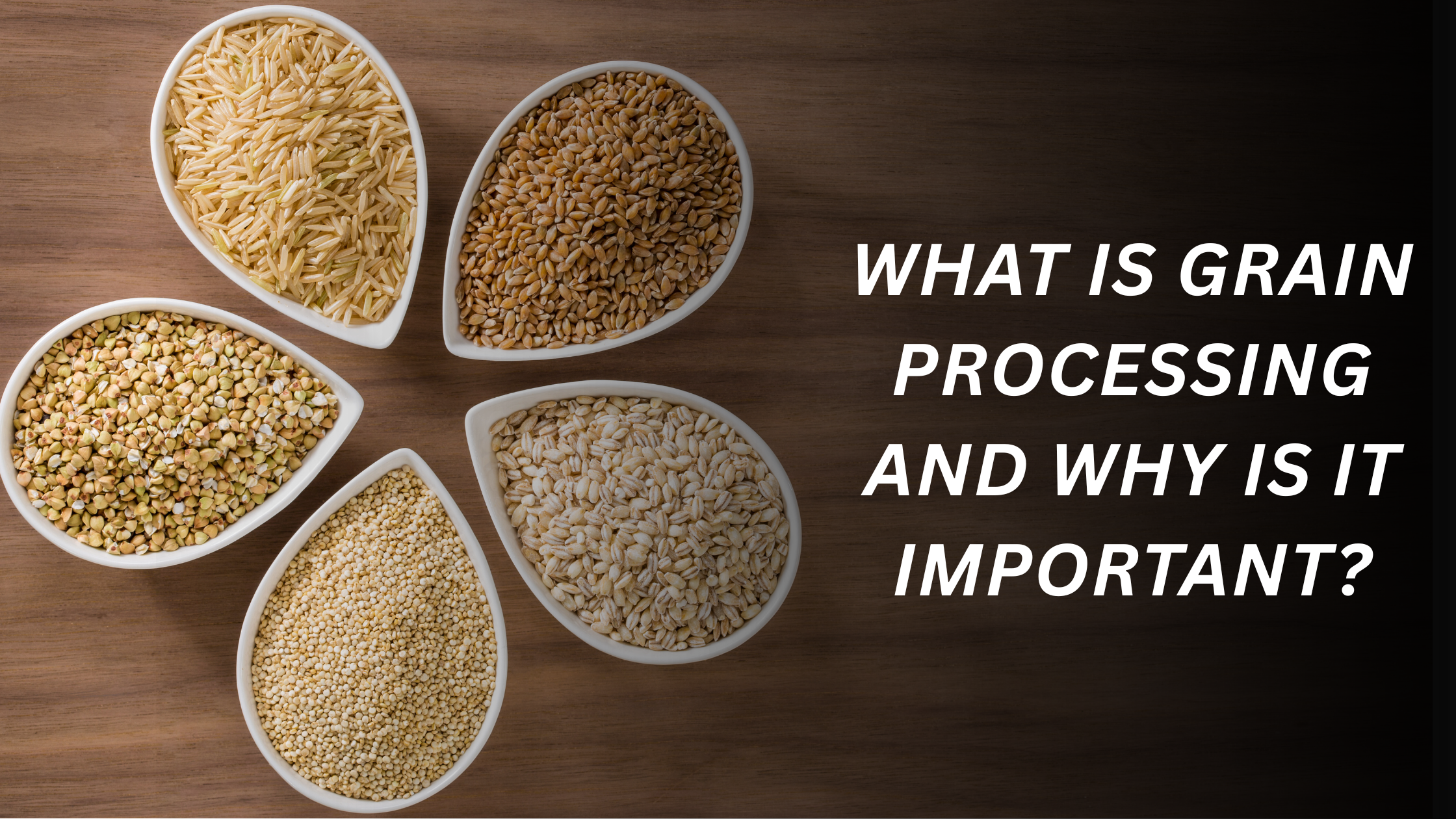As the world evolves, food production methods are evolving too. These days, individuals and food manufacturing ventures are giving a lot of attention to the environment. Markets across the globe are being requested to reduce pollution, save resources, and acquire cleaner processes. Grain milling, a major industry worldwide, involves converting wheat, rice, corn, pulses, and other grains into flour.
Milling is at the heart of our food system—almost every meal we eat involves some form of milling. However, traditional milling techniques consume significant amounts of electricity, water, and packaging, while also generating considerable waste. This is why sustainable milling is essential. By adopting smarter, more efficient practices, mills can reduce their environmental impact, lower costs, and prepare businesses for a future that demands both sustainability and innovation.
The Environmental Impact of Milling
To know why sustainable milling matters, initially, we need to see how regular milling affects the environment.
- Energy consumption: Mills use heavy equipment that requires much electricity. They still largely rely on fossil fuels such as coal or diesel, which emit poisonous gases into the atmosphere.
- Water consumption: Water is employed for cleaning grains and cooling machinery. Without proper control, it can waste enormous amounts of water.
- Waste and dust: Milling yields bran, husk, dust, and other wastes. If not managed appropriately, they can contaminate the air, soil, or water.
- Packaging and transport: Plastic packaging and fuel-intensive transport contribute additional waste and emissions.
When you add all these factors together, the environmental footprint of milling is quite large.
Why Sustainable Milling Matters
Sustainable milling is about reducing these negative effects while still producing the food we need. It means using modern technology and smart practices to make milling cleaner and more efficient. Here’s why it’s so important:
- Saving Energy and Cutting Emissions
The largest expense for the majority of mills is energy, and energy also has the largest environmental footprint. Through the production of renewable energy, such as solar or wind power, mills can reduce emissions.
New machinery is also energy-efficient. For instance, automated devices and VFDs ensure that machines consume only the amount of energy they require. This conserves power, reduces costs, and minimizes pollution. - Using Water Wisely
Water is valuable. It’s already lacking in some places. Eco-friendly mills recycle, purify, and reuse water in the process. Some mills use closed-loop systems that waste almost no water. This keeps rivers and lakes safe and keeps the mills operating even in arid areas. - Reducing and Reusing Waste
Traditional milling often throws away byproducts like bran or germ. In sustainable milling, nothing is wasted.
* Bran and germ can be turned into animal feed or healthy food products.
* Husks can be used to make biofuels.
* Dust can be collected and compacted instead of being released into the air.
This not only reduces waste but also creates extra income for mill owners. - Eco-Friendly Packaging and Transport
Plastic waste is among the largest problems in the world. Eco-friendly mills employ packaging material that is either recycled, reusable, or biodegradable. Reusable containers are an option for bulk purchasers.
Transport is also significant. By optimizing shipping routes and employing fuel-efficient transportation, mills can minimize the pollution generated by shipping goods. - Building Trust with Consumers
Customers these days are concerned with how their food is produced. They would like to patronize companies that care about the environment and are responsible. A mill that demonstrates it is conserving, saving energy, and preserving the environment gains respect and credibility. This creates stronger relationships with customers and makes brands unique in the marketplace.
Beyond the Environment: Other Benefits
The great news is that sustainable milling is not just good for nature, it is good for business too.
- Lower costs: Energy-efficient machines and recycling systems reduce bills.
- New income streams: Selling byproducts like bran or husk creates extra earnings.
- Better work conditions: Cleaner operations improve air quality and safety for workers.
- Government support: Many governments now provide incentives, tax breaks, or recognition for green practices.
All of this shows that sustainable milling is not just about being “eco-friendly.” It also makes financial and social sense.
Moving Toward a Sustainable Future
Of course, changing from conventional to sustainable milling requires time and capital. Small and medium-scale mills will find it difficult. But the long-term gains are worth it. Upgrading gadgets, using renewable energy, conserving water, and recycling byproducts all pay dividends in the long run.
It can happen if every player does their bit — technology companies, mill owners, governments, and also consumers. Innovations, market demand, and policies will all nudge the industry in the direction of greener ways.
Conclusion
Sustainable milling is must important because it saves the earth, conserves valuable resources, and builds a more stable future for the food industry. Milling itself might only occur to be one step in the chain, but it makes an enormous difference to air, water, and the planet. With brilliant changes, the industry can reduce its footprint and help create a healthier world.
For more information, you can visit our website, Flourtech Engineers, or contact us at +91 9663594709.



